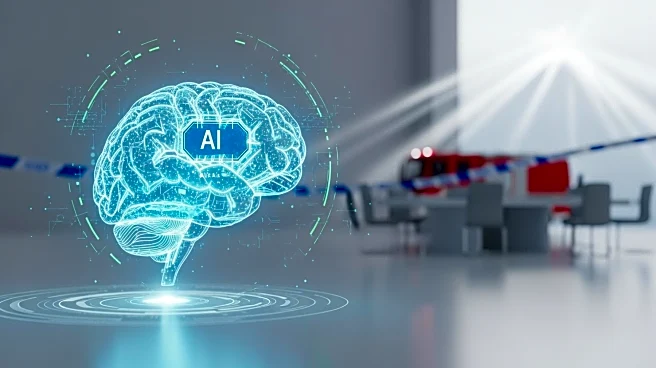What's Happening?
In the age of artificial intelligence, the focus is shifting towards ensuring workers have the necessary skills to adapt to technological changes. According to experts, while AI may disrupt certain tasks,
it is unlikely to eliminate entire jobs. Historical trends show that technology often creates more jobs than it eliminates, as seen with the rise of computer-related occupations. The key challenge lies in training workers to leverage AI effectively, with initiatives like Google's Career Certificates aiming to provide mid-career reskilling opportunities.
Why It's Important?
The integration of AI into the workforce presents both opportunities and challenges. While AI can drive productivity and improve living standards, it also requires workers to adapt and acquire new skills. Governments and businesses must prioritize reskilling efforts to ensure workers can transition smoothly into new roles. This is crucial for maintaining economic stability and preventing job displacement, particularly in sectors vulnerable to automation.
What's Next?
Policymakers and businesses are expected to increase investment in training programs and initiatives that support workers in acquiring AI-related skills. Employer-led retraining efforts and apprenticeships may become more prevalent, helping workers transition into high-wage sectors. The focus will be on creating a workforce that can thrive alongside AI, with ongoing discussions about the best strategies for reskilling and workforce development.
Beyond the Headlines
The uneven distribution of technology's impacts means certain groups may face more challenges during the transition. Addressing these disparities will be crucial for ensuring equitable access to new opportunities. The ethical implications of AI in the workplace, including privacy concerns and the potential for bias, will also need to be addressed as AI becomes more integrated into daily work.









